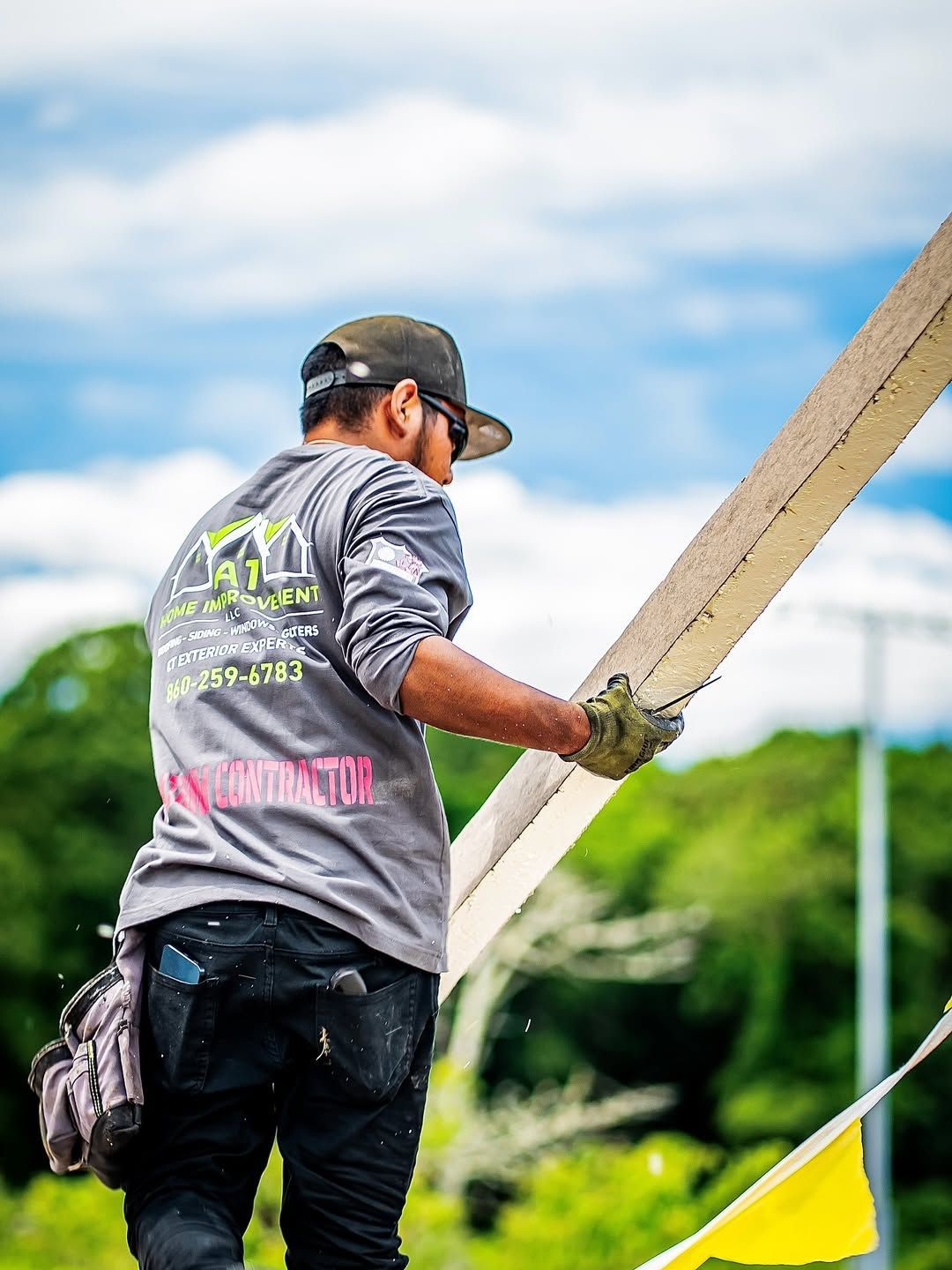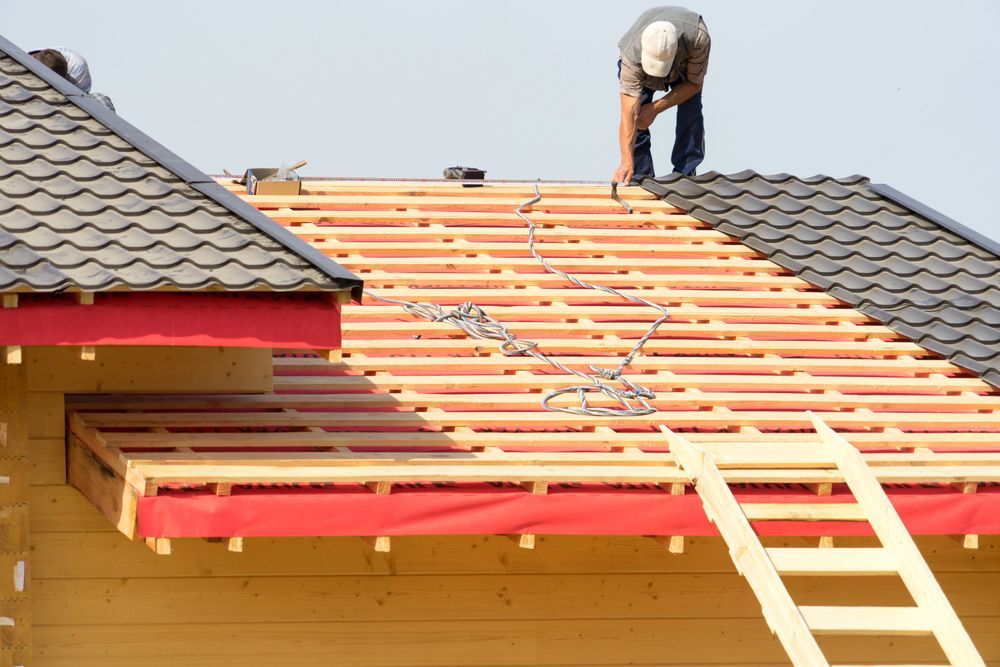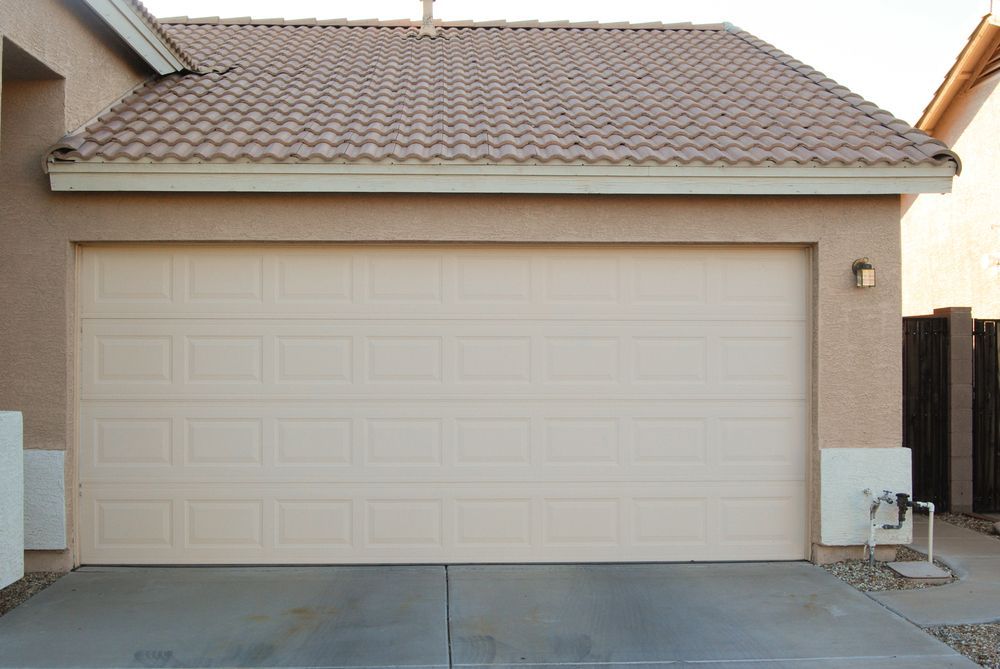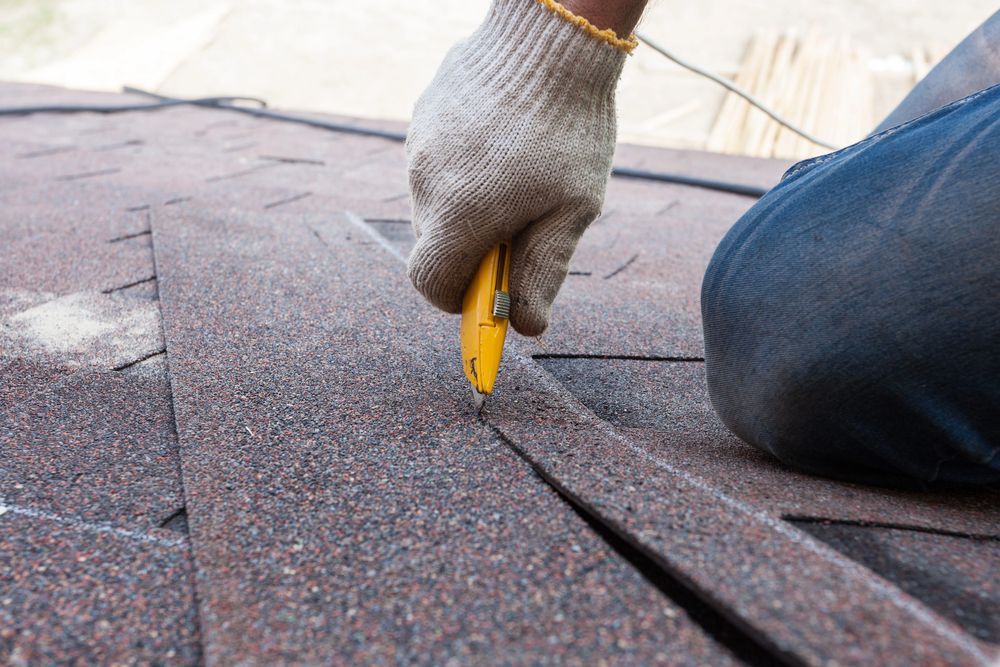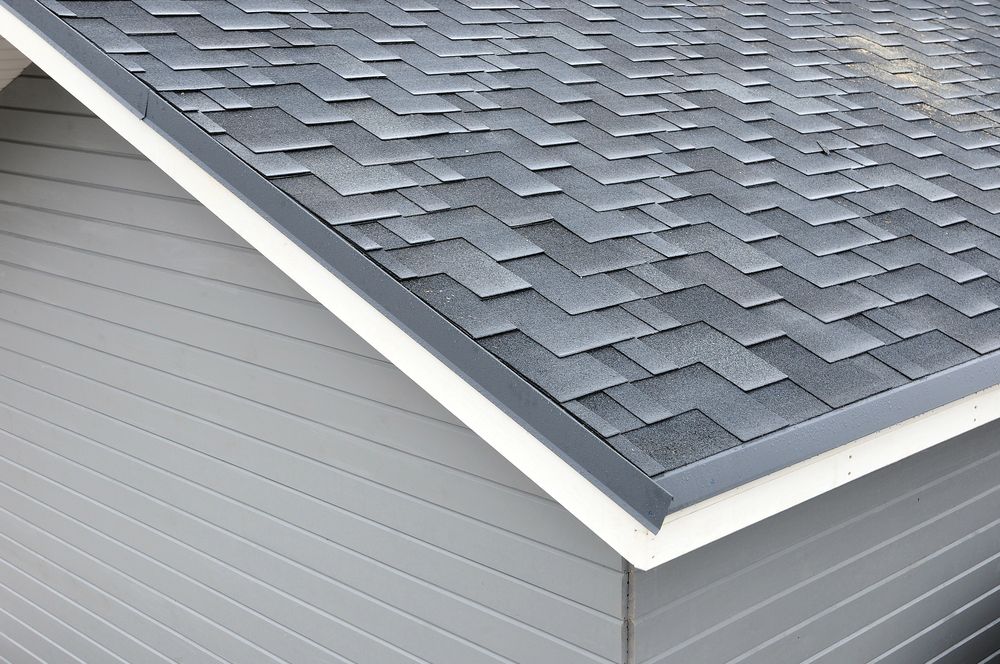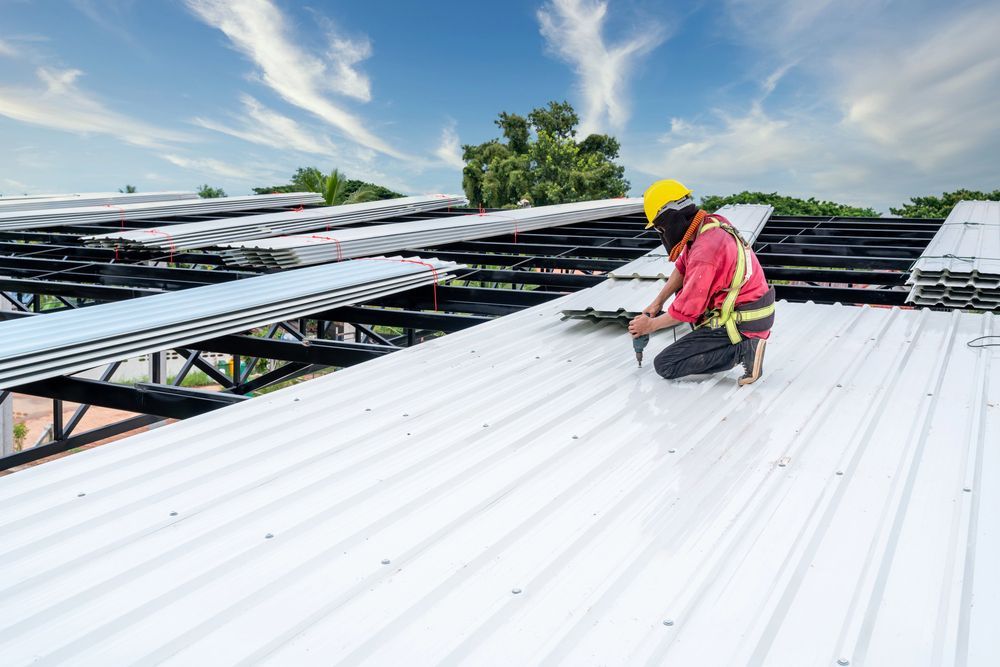Average Cost to Replace Asphalt Roof in 2024: What to Expect
Wondering about the average cost to replace an asphalt roof in 2024? On average, homeowners spend about $9,000; however, the average cost to replace asphalt roof can vary based on factors such as roof size, type of shingles, and labor costs. This article will help you understand these factors and plan your budget effectively.
Key Takeaways
- The average cost of replacing an asphalt roof in 2024 is around $9,000, varying based on size, materials, and labor.
- Key factors influencing costs include roof size and layout, type of shingles, labor rates, pitch, and accessibility.
- Homeowners can save money by obtaining multiple quotes, timing their projects during off-peak seasons, and exploring financing options.
Key Factors Influencing Asphalt Roof Replacement Costs
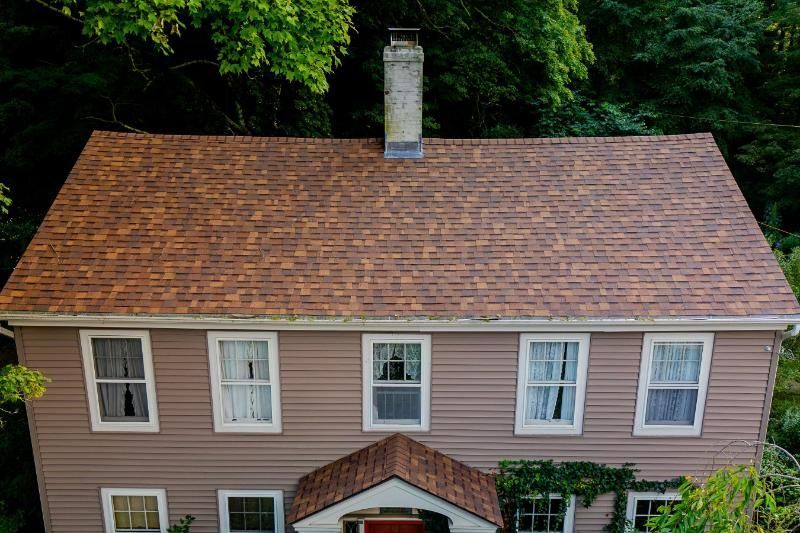
Several factors influence the cost of replacing an asphalt shingle roof. These include the size and layout of the roof, the type of asphalt shingles used, labor costs, and the roof’s pitch and accessibility. Every aspect significantly influences the overall budget for your roof replacement project.
Grasping these elements enables more informed decisions and better expense management.
Roof Size and Layout
The size and complexity of your roof are primary determinants of the overall cost of an asphalt roof replacement. Larger roofs require more materials and labor, significantly driving up costs. For instance, a few hundred extra square feet can increase the price by thousands of dollars. The layout also matters; complex designs with multiple angles and features can raise costs by 10-20% due to the additional time and materials needed.
Roofing costs are typically quoted per square, with one square covering 100 square feet. Therefore, calculating your roof’s surface area (width multiplied by length) is essential for an accurate estimate.
Material choice, accessibility, location, and necessary repairs also impact the total cost. Being aware of these aspects aids in more accurate budgeting for your roof replacement.
Type of Asphalt Shingles
The type of asphalt shingles you choose significantly impacts the overall cost of your roofing project. Basic 3-tab shingles are the most affordable, costing approximately $1.50 per square foot. These shingles are the most common and offer a straightforward, cost-effective solution for many homeowners.
However, architectural asphalt shingles, known for their enhanced performance and dimensional appearance, come at a higher price. Luxury asphalt shingles, which mimic the look of high-end materials like slate or wood shakes, represent the premium end of the spectrum. These shingles offer superior durability and aesthetic appeal but require a higher investment.
Balancing cost with the desired appearance and longevity helps in selecting the right type of shingles and ensures good value for your money.
Labor Costs
Labor costs for roof replacement can vary significantly based on geographic location, roof complexity, and seasonal demand. In areas like California, New York, and Hawaii, roofing installation costs are generally higher due to local market conditions. Labor typically accounts for about 60% of the total project cost, making it a substantial part of your budget.
Factors such as roof pitch and accessibility also impact labor costs. Steeper roofs and two-story homes may require specialized equipment and additional safety measures, increasing labor expenses. Additionally, labor rates can rise by 15-30% during peak construction seasons.
Awareness of these variables aids in more precise planning and budgeting for your roof replacement project.
Roof Pitch and Accessibility
The pitch of your roof and its accessibility are critical factors influencing labor costs. Roofs with a pitch exceeding a 6:12 ratio (meaning they rise 6 inches for every 12 inches of horizontal distance) require specialized equipment and added safety measures, leading to higher labor costs. High-pitch roofs are more challenging to work on, increasing the time and effort needed for installation.
Accessibility issues, such as limited space around the house or difficult terrain, can also add to the cost. Contractors may need to use additional equipment or incur extra travel fees, further increasing expenses.
Recognizing these factors allows for better anticipation of potential costs and more effective budgeting for your roof replacement.
Average Cost of Asphalt Shingle Roof Replacement

The average cost of replacing an asphalt shingle roof in 2024 is influenced by various factors, including roof size, shingle type, and labor expenses. On average, homeowners can expect to pay around $9,000 for a complete roof replacement.
However, costs can vary widely based on specific circumstances, making it essential to understand the breakdown of these expenses.
Cost Per Square Foot
The cost per square foot for roof replacement varies depending on the type of shingles and labor involved. The average cost varies between $4.35 and $11 per square foot. This range reflects typical pricing for the material in question. Basic asphalt shingles are the most affordable, with costs typically falling between $4.25 and $8.50 per square foot. This includes both materials and installation costs.
For higher-end shingles, such as architectural and luxury options, costs can range from $4.50 to $25 per square foot. The combined estimated cost for materials, labor, and demolition when installing asphalt shingles generally falls between $3.50 and $9.50 per square foot.
Knowledge of these cost ranges allows homeowners to budget more accurately for their roof replacement.
Total Cost for Common Roof Sizes
The total cost of roof replacement can be better understood by looking at common roof sizes. For instance, replacing a 1,000-square-foot house roof typically costs between $4,400 and $11,000. For a 2,000-square-foot roof, the roof cost ranges from $6,000 to $9,800, and understanding roof costs can help homeowners budget effectively.
These examples offer a clearer understanding of potential expenses based on roof size, assisting homeowners in estimating their own project costs more effectively.
Materials and Their Impact on Costs
The choice of roofing materials significantly impacts the overall cost of a roof replacement. Factors such as material quality, durability, and local climate conditions play a crucial role in determining costs. High-quality materials may be more expensive upfront but can offer better durability and lower maintenance costs over time.
Being knowledgeable about these aspects empowers homeowners to make informed decisions regarding their roofing materials.
Basic Asphalt Shingles
Basic asphalt shingles are the most cost-effective roofing material, with prices for 1,000 square feet ranging from $4,500 to $8,000, including installation. These shingles are popular due to their affordability and ease of installation. However, in humid areas, algae and fungus growth can damage these shingles, potentially increasing maintenance costs.
Algae-resistant shingles can be a worthwhile investment in such climates, adding 10% to 15% to the total material costs. More than 50% of the total cost for shingling a roof is attributed to installation, making it essential to consider both material and labor expenses when budgeting for a roof replacement.
Architectural Asphalt Shingles
Architectural asphalt shingles offer enhanced durability and a more appealing look compared to basic options. These shingles are thicker and more robust, providing better resistance to weather elements and a longer lifespan. While they are more expensive upfront, their longevity and reduced maintenance needs can result in cost savings over time.
The aesthetic appeal of architectural shingles is another significant advantage. They provide a dimensional look that can enhance the overall appearance of your home. Homeowners willing to invest more can benefit from architectural shingles’ balance of durability, beauty, and long-term value.
Luxury Asphalt Shingles
Luxury asphalt shingles represent the premium end of the market, offering an aesthetic that mimics high-end materials like slate or wood shakes. These shingles cost approximately $9.50 per square foot, making them a more significant investment. However, their superior durability and high-end appearance can justify the higher cost for many homeowners.
Designed for maximum performance and longevity, these shingles reduce the need for frequent repairs or replacements. For those looking to enhance their home’s curb appeal and invest in long-lasting roofing solutions, luxury asphalt shingles are an excellent choice.
Additional Costs in Asphalt Roof Replacement
Beyond the basic costs of materials and labor, several additional expenses can arise during a roof replacement project. These include the removal and disposal of old roofing, underlying structural repairs, and obtaining necessary permits and inspections.
Awareness of these potential costs enables homeowners to budget more accurately and avoid unexpected expenses.
Removal and Disposal of Old Roofing
Removing an old roof typically costs between $1 and $5 per square foot, with the average cost around $1,250. This process is labor-intensive and involves carefully taking off existing shingles and materials for proper disposal. The estimated demolition cost ranges from $0.50 to $1 per square foot.
Disposal fees for old roofing materials can add to the overall project cost, especially if multiple layers of shingles are involved. Junk removal costs for construction debris can range from $1,200 to $1,300 for a 20-yard dumpster. These additional expenses should be included in your budget to avoid surprises.
Underlying Structural Repairs
Unexpected structural issues discovered during roof replacement can lead to significant cost increases. Replacing damaged wood decking or framing can add substantial expenses to the project. Preparing for these potential costs is crucial for maintaining the roof’s structural integrity and longevity.
Permits and Inspections
Obtaining necessary permits and conducting inspections are critical steps in the roof replacement process. Permit costs can vary based on local regulations, impacting the overall budget. The average cost of a roof inspection after shingle installation is $220. Having all necessary permits and inspections in place ensures compliance with local building codes and regulations.
Comparing DIY vs. Professional Roof Replacement
Deciding between DIY and professional roof replacement requires weighing potential cost savings against associated risks and benefits. While DIY projects can save money, they come with safety concerns and the risk of voiding manufacturer warranties on roofing materials.
Hiring professional roofing contractors ensures expertise, efficiency, and warranty coverage, providing peace of mind and long-term protection for your investment.
Risks and Benefits of DIY
Opting for a DIY roof replacement can lead to significant savings, but it carries substantial risks. Safety is a major concern, as falls are a leading cause of injuries in construction. Additionally, DIY roof replacement may void manufacturer warranties on roofing materials, potentially leading to higher costs in the long run if issues arise.
Despite these risks, some homeowners may still prefer the DIY route to save on labor costs. Weighing these benefits against potential drawbacks and ensuring necessary skills and equipment is crucial for a safe and effective project completion.
Advantages of Hiring Professionals
Hiring a professional roofing contractor offers numerous advantages that can outweigh the initial cost savings of a DIY approach. Professionals bring specialized knowledge and skills essential for the correct installation of roofing materials, ensuring the job is done right the first time. They also complete roof replacements more swiftly and effectively, minimizing potential disruptions for homeowners.
Moreover, professional roofing contractors typically offer warranties on their roof installation work, providing peace of mind and protection for your investment. These warranties cover potential issues, ensuring any problems are addressed without additional costs.
For larger repairs and full replacements, hiring a licensed roofing company is recommended to ensure compliance with safety standards and local regulations.
Tips to Save on Asphalt Roof Replacement Costs
Saving on asphalt roof replacement costs is possible with careful planning and smart decision-making. Expenses can be reduced by obtaining multiple quotes, scheduling the project during off-peak seasons, and exploring financing options. These strategies can help manage the budget effectively and ensure you get the best value for your money.
Get Multiple Quotes
Obtaining multiple quotes from different roofing contractors is a crucial step in managing roof replacement costs. Homeowners should aim to get three to five quotes to compare prices and services offered. This approach allows for an informed decision based on competitive pricing and quality of work from different contractors.
Time Your Project Wisely
Timing your roof replacement project wisely can lead to significant cost savings. Costs are generally higher during peak seasons like spring and summer and lower during off-peak seasons like fall and winter. Scheduling your project during off-peak times can lead to more competitive quotes and priority scheduling from contractors.
Additionally, fall is often recommended for roof replacement due to favorable weather conditions.
Explore Financing Options
Exploring various financing options can help homeowners manage the costs associated with roof replacement. There are several financing options available, including home equity loans, personal loans, and financing plans offered by roofing companies.
These options make the project more affordable by spreading the cost over time, allowing homeowners to undertake necessary roof replacements without financial strain.
Choosing the Right Roofing Contractor
Selecting the right roofing contractor is vital for the success of your roof replacement project. Factors such as credentials, licensing, reviews, references, and warranties should be carefully considered. A reliable contractor ensures quality work, compliance with safety standards, and long-term protection for your investment.
Check Credentials and Licensing
Verifying credentials and licensing of potential contractors is crucial to ensure quality and reliability. Homeowners should check for a C-39 license, which is typically required for roofers in most states. Requesting photos of past work and inquiring about the contractor’s experience can provide insights into their expertise and the quality of their work.
Read Reviews and Ask for References
Reading online reviews and requesting references from past clients are essential steps in evaluating a roofing contractor’s reliability and work quality. Reviews provide insights into the contractor’s performance, while references can confirm their reliability and customer satisfaction.
A balanced perspective when reading reviews aids in making an informed decision based on both positive and negative feedback.
Evaluate Warranty and Service Agreements
Assessing the warranty and service agreements offered by roofing contractors is critical for protecting your investment. A comprehensive warranty should cover materials, labor, and specify the duration and scope of coverage. A strong warranty indicates confidence in the quality of work and materials, providing long-term peace of mind.
Checking if the warranty includes transferability options in case you sell your home is also important.
Summary
Understanding the costs associated with asphalt roof replacement is essential for homeowners planning this significant project in 2024. Key factors influencing costs include roof size and layout, shingle type, labor costs, and roof pitch and accessibility. Additional expenses such as removal and disposal of old roofing, structural repairs, and permits should also be considered. By obtaining multiple quotes, timing the project wisely, and exploring financing options, homeowners can manage their budget effectively. Choosing the right roofing contractor ensures quality work and long-term protection for your investment. With this knowledge, you are better prepared to undertake a successful roof replacement project.
FREQUENTLY ASKED QUESTIONS
Have Questions? We Have Answers
Share this Post
